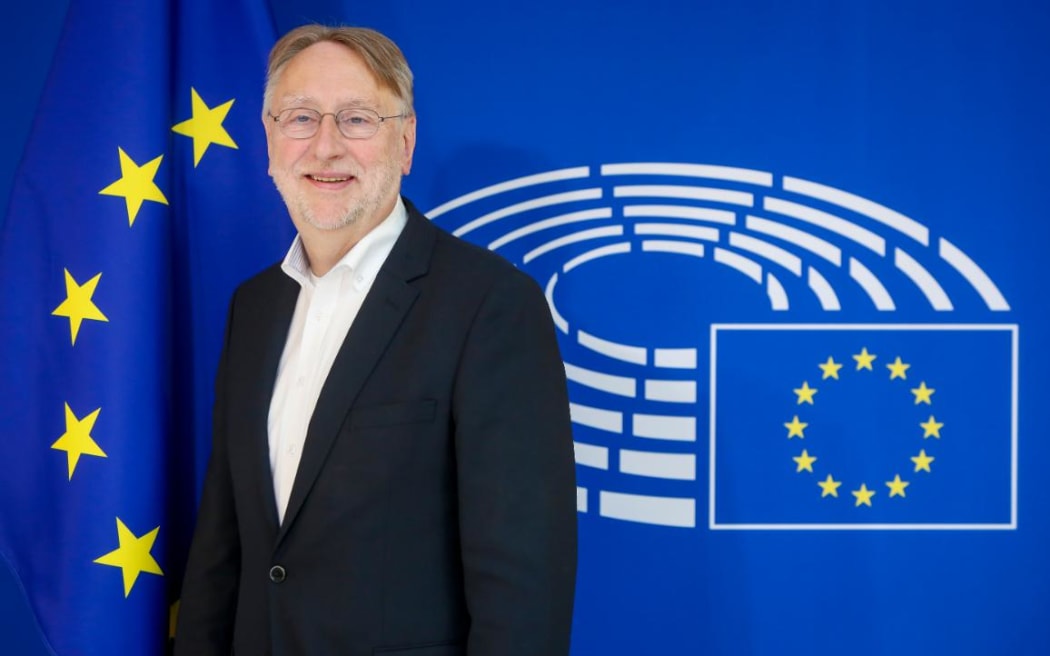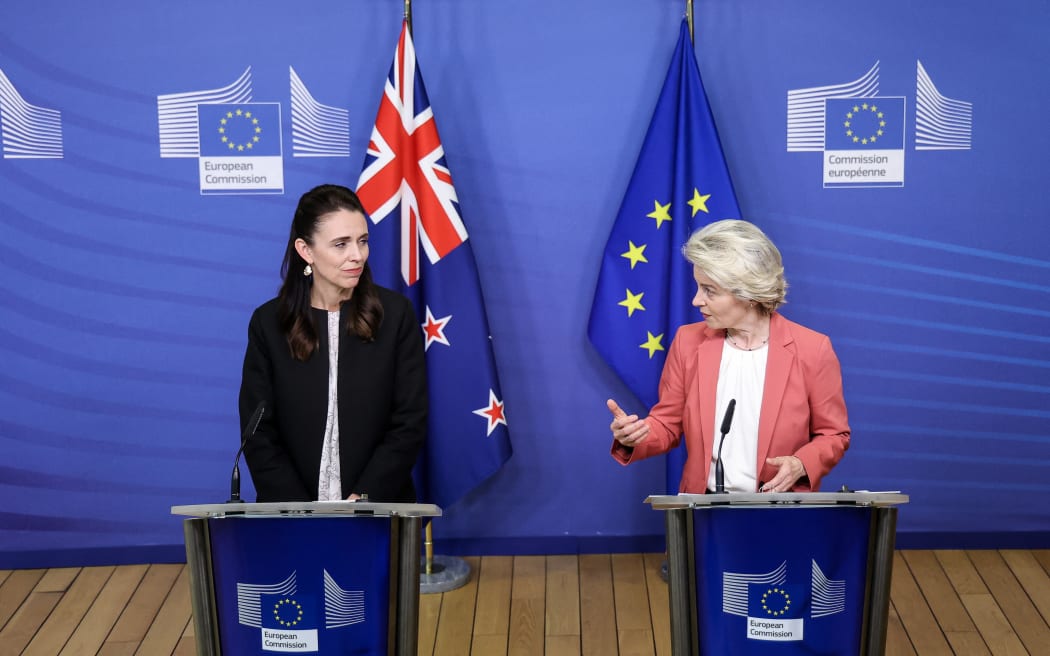 The EU’s July trade deal with New Zealand is comprehensive and a wonderful agreement, Bernd Lange says. Photo: European Parliament
The EU’s July trade deal with New Zealand is comprehensive and a wonderful agreement, Bernd Lange says. Photo: European Parliament
The chair of the European Parliament’s International Trade committee is confident the process of ratifying the trade deal with New Zealand will be simple.
New Zealand secured an historic free trade agreement with the European Union in July 2022, which would remove tariffs on 91 percent of NZ exports, once signed.
 Prime Minister Jacinda Ardern and European Commission president Ursula von der Leyen announce the agreement in Brussels. Photo: Kenzo TRIBOUILLARD / AFP
Prime Minister Jacinda Ardern and European Commission president Ursula von der Leyen announce the agreement in Brussels. Photo: Kenzo TRIBOUILLARD / AFP
But some in New Zealand have warned ratification will not be easy and will require a significant amount of political lobbying.
New Zealand’s chief negotiator Vangelis Vitalis has pointed to groups in Europe, like farming body Copa Cogeca, which had been rallying opposition.
“It is by no means a done deal and if you look at the reactions of both the dairy industry and the Federated Farmers’ equivalents in Europe you can already see that they’re starting to muster their forces … about how they were going to oppose this deal with New Zealand.
“This is going to be challenging, this is going to take a lot of political effort … there’s going to be a huge diplomatic effort to push this across the line,” Vitalis said.
A delegation of parliamentarians, responsible for leading Europe’s ratification of the agreement, are visiting Wellington this week to understand how the deal has been recieved in New Zealand and to discuss its ratification.
European Parliament’s Committee on International Trade chair Bernd Lange said the European Parliament had the power to approve or reject or change deals.
But Lange was “quite confident” the European parliament would approve the deal with New Zealand.
“It’s really comprehensive, a wonderful agreement, the gold standard for future trade agreements, reflecting a lot of the demands of the European parliament.”
Lange expected the “intensive exchange of views” during negotiations would ease the ratification.
“Everybody could present their interests during the negotiation process, it was really transparent. I don’t expect that any of the member states will raise big concerns [during ratification].”
He hoped the agreement would be ratified by mid-2023.
Some European member states feared the increased market competition, Lange said.
“But it’s a give and take, and the overall achievement on sustainability, on market access … and regarding the geopolitical situation, I guess it’s a big win for both sides.”
The agreement came at a critical time for Europe, with many governments facing pressure over soaring inflation, the energy crisis and food security caused by the war in Ukraine.
